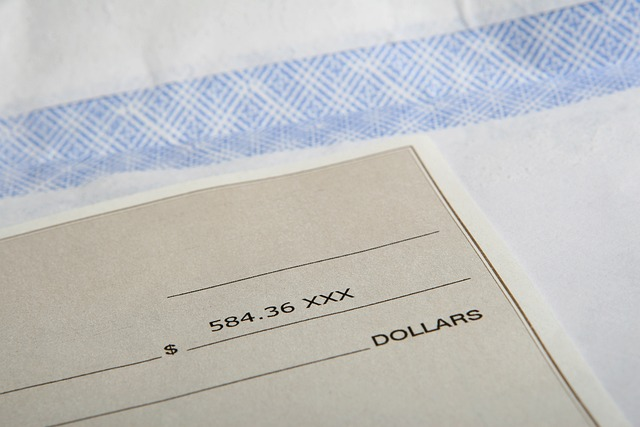Contents
- 1
- 1.1 Key Takeaways
- 1.2 Understanding Mortgage Notes
- 1.3 Reasons to Sell Your Mortgage Note
- 1.4 Choosing the Right Note Buyer
- 1.5 Preparing Your Mortgage Note for Sale
- 1.6 Full vs. Partial Sale Options
- 1.7 Maximizing the Value of Your Mortgage Note
- 1.8 The Mortgage Note Sale Process
- 1.9 After the Sale: What to Expect
- 1.10 Summary
- 1.11 Frequently Asked Questions
Are you holding a mortgage note and considering the thought, “sell my mortgage note”? It’s vital to understand the intricacies of mortgage notes and the selling process. In this comprehensive guide, we will explore the different aspects of mortgage notes, the reasons to sell, how to choose the right note buyer, and the steps involved in the sale process. By the end of this article, you’ll have a clear understanding of what to expect and how to maximize the value of your mortgage note when you decide to sell my mortgage note.
Key Takeaways
- Understanding mortgage notes is essential for making informed decisions regarding selling them.
- Selling a note can provide quick liquidity and the transfer of default or foreclosure risk to the buyer, as well as help achieve financial goals such as debt repayment and business investment.
- Choosing the right note buyer requires researching offers, being aware of potential scams, preparing documents correctly, obtaining an appraisal and conducting a title search in order to maximize value.
Understanding Mortgage Notes

Mortgage notes, including private mortgage note, play a crucial role in the real estate market, as they are legal documents that outline the terms and conditions of a loan secured by real estate. These notes contain pertinent details such as the loan amount, interest rate, and repayment duration.
When contemplating the sale of your note in the secondary market, it’s vital to grasp the key components of mortgage notes.
Legal Document
Mortgage notes are legally binding agreements between borrowers and lenders for a mortgage loan, with the property serving as collateral. Both parties are provided with legal protections, including the lender’s right to foreclose in case of default and disclosure requirements for lenders.
As legal documents, mortgage notes safeguard justice and preserve the rights of all parties involved, including the note holder, in the mortgage note agreement.
Key Components
The primary elements of a mortgage note consist of loan terms, fees, and interest rates. Interest rates play a crucial role in determining the cost of borrowing for the borrower and the amount of interest earned by the lender. Additionally, they influence the calculation of mortgage payments, which are affected by factors such as principal, taxes, and insurance.
Understanding the fundamental elements of your mortgage note aids in making informed decisions when you contemplate selling your note.
Reasons to Sell Your Mortgage Note

There are various reasons why one might consider selling a mortgage note. These reasons can range from achieving financial goals and mitigating risk to addressing life events such as divorce or death.
Selling your mortgage note allows for a swift lump sum acquisition on the secondary market, which you can utilize to achieve financial goals or cater to urgent financial demands.
Financial Goals
Selling a mortgage note, including private mortgage note selling, can help you achieve a range of financial goals, such as paying off debt, starting a business, or even diversifying your investments. For instance, selling your mortgage note can yield an immediate lump sum of cash, which can be channeled towards covering costs, investing in a new business venture, or funding the launch of your enterprise.
This can be a viable option for those seeking financial flexibility and new opportunities.
Risk Mitigation

Mortgage note sales can help you mitigate risk by providing quick liquidity and diversifying your investments. Quick liquidity plays an integral role in financial planning, given it guarantees the accessibility of cash or assets convertible to cash with ease. This enables you to fulfill your financial responsibilities and seize investment opportunities without hesitation.
Furthermore, offloading a mortgage note enables the transfer of default or foreclosure risk to the buyer, thereby diminishing your potential susceptibility to these risks.
Life Events
Life events such as divorce or death may necessitate the sale of a mortgage note to divide assets or cover expenses. In such cases, it’s crucial to understand the legal and financial implications of selling a mortgage note. Selling your mortgage note ensures that the proceeds cater to the financial challenges that these life events present, granting you peace of mind and financial stability.
Choosing the Right Note Buyer

Finding the right note buyer is a crucial aspect of selling your mortgage note successfully. This involves:
- Researching and comparing offers from various note buyers
- Being vigilant of potential scams and unscrupulous buyers
- Meticulously evaluating each mortgage note buyer’s credentials, offer terms, financial resources, and customer service
By following these steps, you can make an informed decision and guarantee a seamless transaction.
Research and Comparison
A comprehensive research and comparison of multiple buyers, including note purchasing company options, is key in finding the right mortgage note buyer. Evaluating the credibility of mortgage note buyers can be done by examining their website, confirming their license, and reviewing their reputation among previous clients. It’s also important to consider various factors such as the buyer’s experience, offer price, terms and conditions, and customer service when comparing offers.
This method guarantees the discovery of a reputable and trustworthy mortgage note buying company for your mortgage note.
Avoiding Scams
Being aware of common scams in the mortgage note buying industry is crucial to protect yourself from potential financial loss. Some red flags to watch out for include Social Security number discrepancies, borrowers suddenly becoming qualified when they wouldn’t normally be, and inflated sales and appraisal values.
Exercising caution coupled with in-depth research allows you to evade scams and select a trustworthy mortgage note buyer.
Preparing Your Mortgage Note for Sale

Prior to selling your mortgage note, it’s of utmost importance to compile all required documentation, secure a property appraisal, and perform a title search. Properly preparing your mortgage note for sale can help streamline the process and ensure a smooth transaction, maximizing the value of your note and making it more attractive to potential buyers.
Documentation
Gathering the required documentation is a crucial step in preparing your mortgage note for sale. This typically includes a promissory note, mortgage note description, and other supporting documents such as tax returns and proof of income.
Having complete and accurate documentation can ward off potential complications or delays during the selling process.
Property Appraisal
Obtaining a property appraisal is essential when selling a mortgage note, as it determines the current market value of the property. You can order a drive-by appraisal from a local appraiser or agent to obtain a property appraisal for selling mortgage notes.
The appraisal report, as part of the selling documentation, guarantees that potential buyers have access to precise information about the property’s value.
Title Search
Conducting a title search is an important step in preparing your mortgage note for sale, as it verifies the ownership of the property and identifies any liens or encumbrances that could affect the sale. It’s important to:
- Hire a title company or attorney to perform the title search.
- Review the results of the title search.
- Resolve any potential issues that may arise from the title search.
Performing a title search guarantees that your mortgage note is sold with a clear and marketable title, enhancing its value and mitigating risk for the buyer.
Full vs. Partial Sale Options

When selling a mortgage note, you have the option of a full or partial sale, depending on your financial needs and goals. A full sale involves selling the entire mortgage note, while a partial sale allows you to retain ownership of a portion of the note. Understanding the advantages and disadvantages of each sale option can help you make the best decision for your unique situation.
Full Sale
A full sale of a mortgage note involves selling the entire note, providing a lump sum payment and transferring ownership of the note to the buyer. This option offers immediate funds that can be utilized for various financial purposes, such as paying off debt or starting a business. However, it’s important to weigh the potential disadvantages, such as receiving a reduced lump sum payment compared to a partial sale and foregoing potential future income from the mortgage payments.
Partial Sale
A partial sale allows you to sell a portion of your mortgage note while retaining ownership of the remaining payments. This option provides a smaller lump sum payment upfront, which can be helpful for addressing urgent financial needs or granting immediate access to funds. However, you will not receive the full amount of future payments from the portion of the note that is sold, leading to a loss of future income.
Maximizing the Value of Your Mortgage Note

Maximizing the value of your mortgage note necessitates maintaining accurate records, ensuring timely payments, and reporting credit scores. This can enhance the appeal of your mortgage note to potential buyers and allow for a higher selling price.
Additionally, working with reputable note buyers and conducting thorough research can further help you maximize the value of your mortgage note.
The Mortgage Note Sale Process

The mortgage note sale process involves several steps:
- Providing loan documentation
- Underwriting
- Legal document preparation
- Payment processing
Each step is crucial in ensuring a smooth and successful transaction, ultimately resulting in the transfer of ownership and the receipt of payment. A good payment history can contribute to this success.
Understanding and adhering to the required steps enables you to sell your mortgage note confidently and realize your financial objectives.
After the Sale: What to Expect

Once your mortgage note has been sold, the new lender will adhere to the original terms of the contract, with the borrower only changing where and how the mortgage payment is made. It’s essential to communicate any changes to the borrower and address any concerns or questions they may have after the sale.
Keeping informed and fostering open communication can facilitate a seamless transition for all parties involved.
Summary
In summary, understanding the nuances of mortgage notes, reasons to sell, and the sale process is crucial when considering selling your mortgage note. By maximizing the value of your mortgage note, choosing the right note buyer, and properly preparing your mortgage note for sale, you can successfully navigate the process and achieve your financial goals. Remember, selling a mortgage note can be a strategic decision that can provide financial flexibility and help you address life’s unexpected challenges.
Frequently Asked Questions
How much can you sell a mortgage note for?
You can typically sell a mortgage note for around $0.70 on the dollar of the remaining principal balance, depending on the risk associated with purchasing the note.
What does it mean to sell a mortgage note?
Selling a mortgage note means exchanging long-term payments for a lump sum of money, either by selling the entire note or only a portion of it.
Why do people sell mortgage notes?
People sell mortgage notes for two primary reasons: to obtain an immediate cash infusion and to rid themselves of the responsibility of owning the note. This can be due to financial emergencies or simply wanting to free up capital to make a new investment with a higher rate of return.
Do banks sell mortgage notes?
Yes, banks do sell mortgage notes. They typically offer performing notes, which are loans that borrowers are making regular payments on, making them lower risk and a steady source of income for investors.
Can I sell my own mortgage note?
You can indeed sell your own mortgage note to a purchasing company, either partially or fully. You can then receive the agreed-upon price in lump sums or through regular payments depending on the purchasing company you choose.
